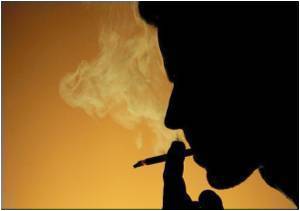A new study has revealed that children exposed to second-hand smoke are more prone to invasive meningococcal disease than children who are not exposed.

By reviewing and analyzing published studies (30 case-control and 12 cross-sectional studies, mostly conducted in high-income countries with good vaccination policies), the researchers used the findings of all studies that had compared the occurrence of invasive bacterial disease in children exposed to second-hand smoke with its occurrence in children who are not exposed.
They found that exposure to second-hand smoke doubled the likelihood of invasive meningococcal disease (with a total odds ratio for second hand smoke exposure of 2.02).
Although there was an increase in the risk of developing invasive pneumococcal disease and Haemophilus influenzae type b, this increase could not be distinguished from chance finding, because a relatively small number of studies were available.
However, nasal carriage of N. meningitidis (which causes meningitis) and S. pneumoniae in children exposed to second-hand smoke was significantly increased compared to those who were not exposed.
The effects were generally stronger in the youngest children, those below 6 years of age, who are more vulnerable.
Advertisement
Such a reduction would be particularly beneficial in poor countries, where vaccination against invasive bacterial diseases is low.
Advertisement
The study is published in the current issue of PLoS Medicine.
Source-ANI













